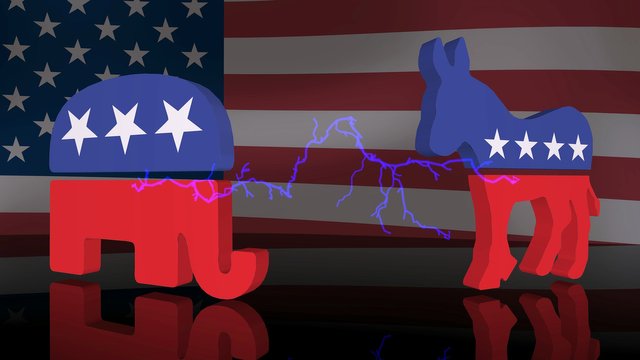Putrid Politics: False Accusations

I had a longer article about the whole Kavanaugh issue, but I decided against publishing it. While I hold some strong political positions, I don’t think talking about them frequently makes good content in most cases. I never wanted my channels on various platforms to be political in nature, especially given the extreme proliferation of political content online.
But I do think these issues are important enough to talk about. Specifically, principles of a free society that were violated during the Kavanaugh hearing and similar events in recent history. I find the principles and ideas behind current events far more interesting than the drama itself.
To be perfectly clear, there was not enough evidence to convict Kavanaugh. So, it was pointed out that he wasn’t under criminal investigation. He was in a job interview, and the allegations spoke more about his character overall. This is a very powerful line of attack, for several reasons. It reduces burden of proof while still allowing the accusers to make their accusations.
Now, I don’t know if Kavanaugh is completely innocent or guilty. The story is too vague and has suffered too many credibility problems for me to accept it wholesale, but I also have no evidence to say it is completely false. Anyone saying they know Kavanaugh is definitely innocent or guilty is probably lying, as there is simply not enough evidence to make such a statement. But people still need to make up their mind on the subject, and thus we end up with two options. Presumption of innocence or presumption of guilt.
The legal standard is simple. Innocent until proven guilty. That is what I try to hold myself to; unless you can show me evidence of wrong doing, I won’t assume someone is a criminal. But I’ve seen a disturbing trend of people doing the opposite. To presume guilt based on a simple accusation without proper evidence. I’ve seen this play out multiple times in a variety of contexts, and it is rarely good.
What isn’t much better is encouraging an investigation into someone without a credible reason. If you investigate someone, anyone, you will most likely find some kind of crime. I’ve heard estimates of the average citizen unwittingly committing three felonies a day, though I don’t know how true that is. I do know that people do accidentally break the law, and number of otherwise overwhelmingly moral people have made some more intentional mistakes in their past. This is why we have the fourth amendment in America; unless you get a warrant with a legitimate reason to investigate, you aren’t allowed to go digging through a person’s private affairs. At least, that is how it should be. I will be the first to admit that America does not always respect this principle as much as it should.
What I think is an even bigger problem is that the public at large doesn’t appear to respect this principle of presumed innocence. If you are applying for a job, do you want to get denied because someone accused you of something with no evidence? They can cite it as something indicating your character, even if the allegation is unproven. More over, if there is an active investigation against you that hasn’t yet produced evidence, then the sheer fact an investigation exists can be used to discredit you. Do we want this kind of behavior? Because it encourages a different kind of negotiation among parties, both in private and political affairs; find dirt on those who hold power over you so they can’t as easily abuse you. I don’t want to live in a blackmailing society, to be perfectly frank.
As a private citizen, it is your basic responsibility to not accuse people of things you for which have no evidence. If not for their sake, for your own, since there is no logical reason such behavior can’t and won’t be turned back on you.
Same post on Minds